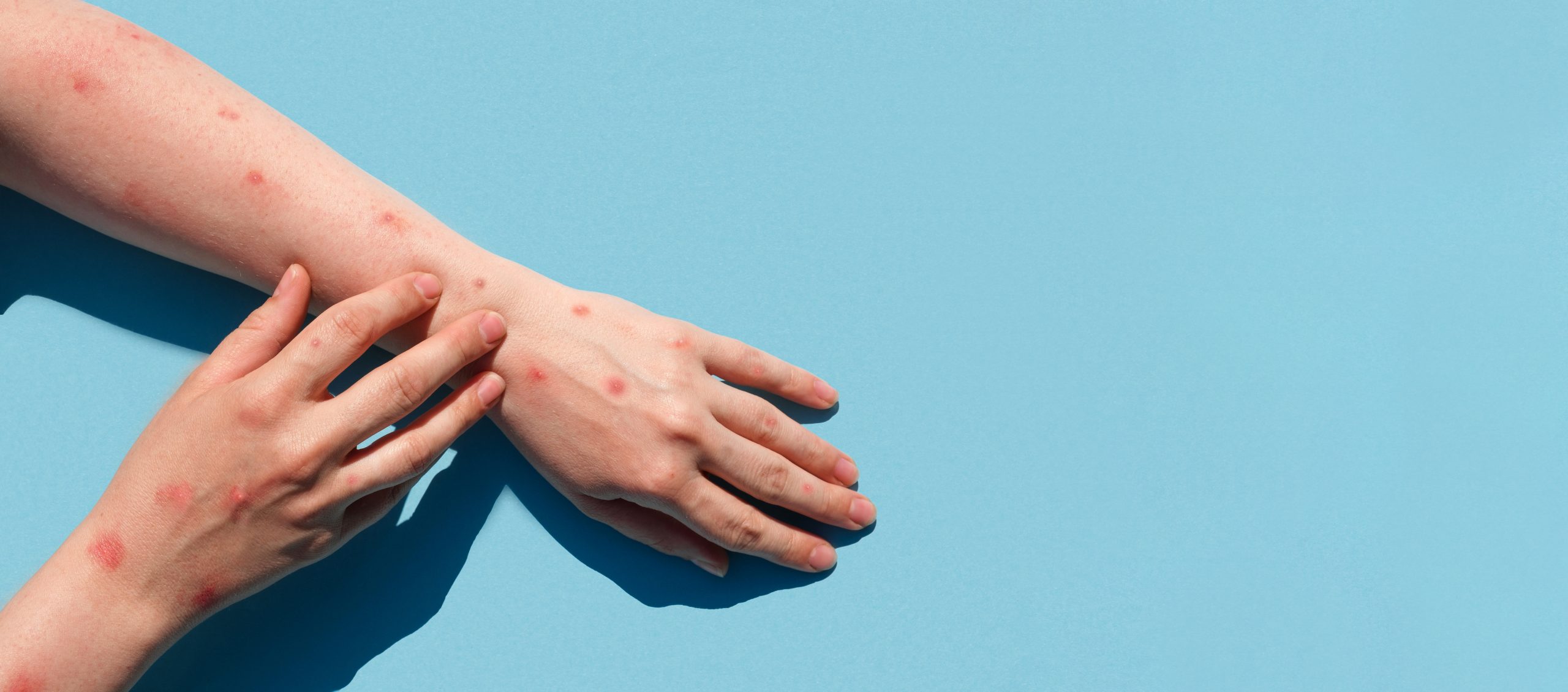Health Advisory
(Authors: Dr. Amit Kumar Gupta MD, MBA and Dr. Roopesh Gupta MD)
Monkeypox is a viral infection, first discovered in monkeys, that can also transmit to humans and cause symptoms and complications. Of late, its incidence has risen globally, with cases reported from more than 75 countries, including India. On 23rd July 2022, the World Health Organization (WHO) announced Monkeypox as a global health emergency.
How does Monkeypox infection happen and spread?
A person can catch this infection from an infected person, an infected animal, or through contaminated objects and surfaces. Human-to-human transmission mostly happens through close contact – either direct skin-to-skin contact with someone who has a Monkeypox rash, or, less commonly, by touching items (such as clothing or bedding) that have encountered an infectious person’s sores or bodily fluids. Unprotected sex can also spread this infection. Infected pregnant women can pass this virus to their babies in the womb.
Common Symptoms of Monkeypox Disease
An infected person may remain symptom-free or develop symptoms after an incubation period of 5 to 21 days. Common symptoms include:
• Flu-like illness (fever, headaches, body aches, etc.)
• Swollen lymph nodes
• Blister-like rashes
Although it may mimic the erstwhile Smallpox (which has already been eradicated several decades ago), the Monkeypox Disease is much less severe and rarely fatal.
The Monkeypox rash generally appears on the face, arms, legs, genitals, and even inside the mouth. It presents as multiple lesions with fluid-filled blisters which may be itchy and painful.
Most persons with this disease improve within 2-4 weeks, without any complications. However, a few may develop complications such as pneumonia, sepsis, secondary infections, and eye involvement (which may lead to loss of vision).
Individuals at High Risk
Pregnant women, young children, and persons with underlying immune deficiencies are more likely to have severe symptoms and complications. At present, it is not clear whether having COVID-19 or Post COVID-19 condition (Long-COVID Syndrome) puts a person at an increased risk of Monkeypox.
Diagnosis and Treatment of Monkeypox Disease
Monkeypox infection can be suspected in a person if suggestive symptoms appear within 21 days of risk exposure (such as close contact with an infected person, animal, or object and/or travel to a country or region reporting such cases).
The diagnosis can be confirmed through RT-PCR testing on an appropriate sample, particularly the fluid from blisters and dry skin crusts. At present, these testing facilities are available at select government labs only. Symptoms often go away on their own without the need for active treatment. However, the following caution is advised:
• The infected person is advised to stay in isolation to prevent the further spread of the disease
• The affected skin should not be scratched and should be protected from further damage.
• The person should eat well, drink plenty of fluids, and take adequate rest and sleep.
• Common symptoms like fever, aches, itch, etc. can be alleviated by using appropriate anti-fever,
painkiller, and anti-itch medications.
The Do’s and Don’ts to follow
• Be aware and generate awareness among others about Monkeypox and its precautionary measures.
• If you suspect that you or someone at your home has Monkeypox (due to suggestive symptoms or relevant risk exposure):
-
• Seek medical assistance without delay and follow the advice.
• Isolate yourself as per the medical advice.
• Employees should inform their HR and Reporting Manager.
• One must Continue to follow COVID-appropriate behaviour (as the COVID-19 Pandemic is yet not over and the relationship of COVID-19 with Monkeypox is yet not clear):
• Practice safe sexual habits with your partner (s) and take precautions.
• Avoid contact with any substance or materials, such as bedding, that has been in contact with a patient suffering with Monkeypox.
• Avoid unprotected contact with wild animals, particularly those that are sick or dead.
• Avoid eating raw or undercooked meat (important for those countries and regions where Monkeypox is endemic and reported in animals).
• Avoid unnecessary travel to an affected area. If you or your partner have traveled through an affected area, talk to your doctor for advice.
• Wear masks and gloves when caring for patients.
The Role of Vaccination
• Some studies suggest that several vaccines that have been developed for the prevention of Smallpox may also provide some protection against Monkeypox. However, these vaccines are yet not widely available. Moreover, researchers are still trying to understand the benefits of such vaccination.
• Studies also suggest that people who have been vaccinated against Smallpox in the past will also have some protection against Monkeypox.
-
Maintaining the Workplace Safety
• Raising awareness of this disease and its preventive & protective measures is the key.
• Screening and surveillance at the workplace, including facilitating a sick employee for prompt isolation and further support can help stop the spread of Monkeypox.
• Routine cleaning of all frequently touched surfaces (such as workstations, countertops, doorknobs, lift buttons, etc.) by using the cleaning agents that are usually used in these areas.
• Keeping appropriate preparedness and response measures in place (including contact tracing).
HCL employees can reach out to HCL Healthcare’s Medical Helpline for information and advice on Monkeypox:
• Call: 92110-22223 available during 9 am – 5 pm, Monday – Saturday
• Email: Covid19@hcl.com
About the Authors – The authors are medical doctors cum public health experts and part of the Central Quality Team at HCL Healthcare







